Reflections from COP28 on the emerging focus on nature-positive economy
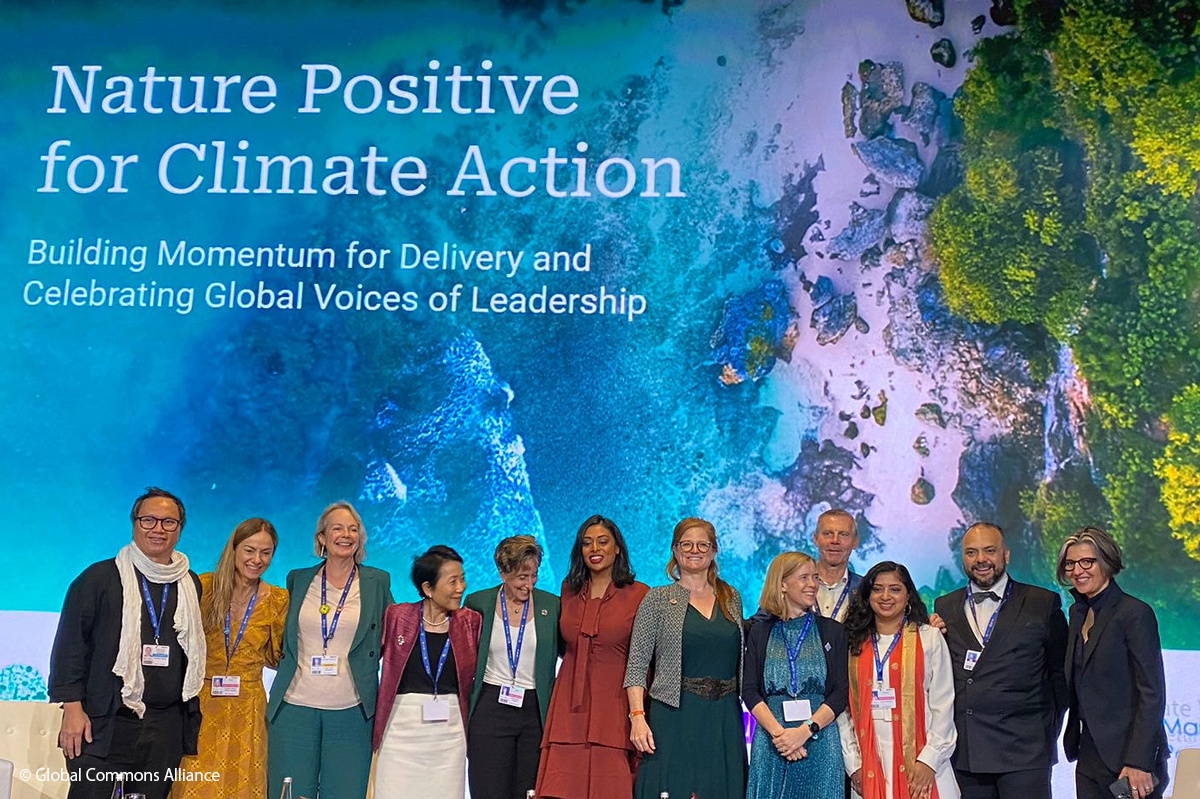
The 28th Conference of the Parties to the United Nations Framework Convention on Climate Change, the climate talks known more generally as COP28, was held Nov. 30-Dec. 13, 2023, in Dubai, United Arab Emirates. Project Professor Naoko Ishii, director of the University of Tokyo’s Center for Global Commons, discusses the outcomes from the annual meeting and what remains to be addressed.
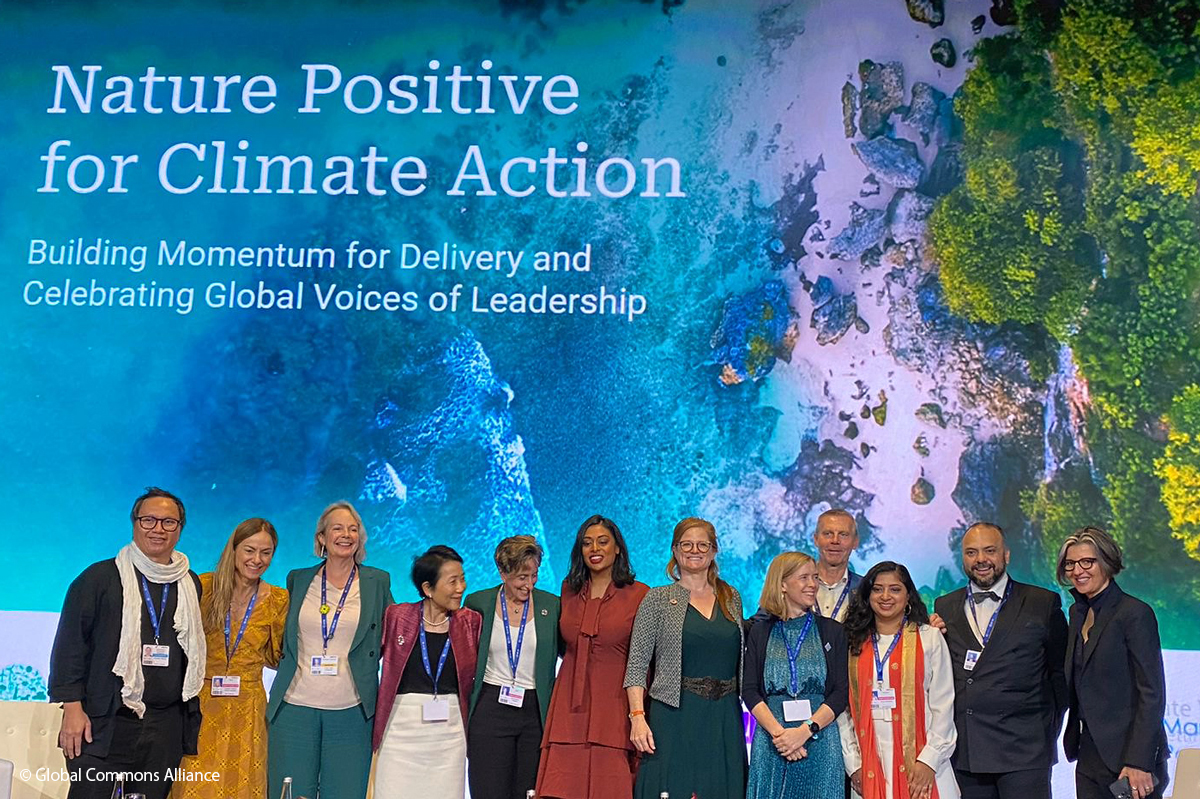
Center for Global Commons Director Naoko Ishii (fourth from left) poses for a group photo with other participants of a roundtable on climate change and nature positivity held on Dec. 11, 2023, at the COP28 climate summit in Dubai, United Arab Emirates. ©Global Commons Alliance
Climate change and our natural systems
―― One of the main focuses of COP28 was carbon neutrality. Was there any progress on that front?
The most notable development related to carbon neutrality, which is aimed at decarbonizing the economy, was the agreement to transition away from fossil fuels. The United Arab Emirates, host of COP28, heralded this as a “historic” deal, as it was the first time an agreement referred to fossil fuels beyond coal. However, the agreement utilizes diplomatic language that is open to various interpretations, leaving the agreement rather ambiguous. The agreement also lacks specific targets with clear timelines, which is convenient not just for oil-producing countries, but also for developing countries reliant on coal, oil and natural gas, as well as for countries that are not reducing their fossil fuel consumption aggressively. On the other hand, this was a devastating conclusion for small island nations and developing countries who are vulnerable to the effects of climate change.
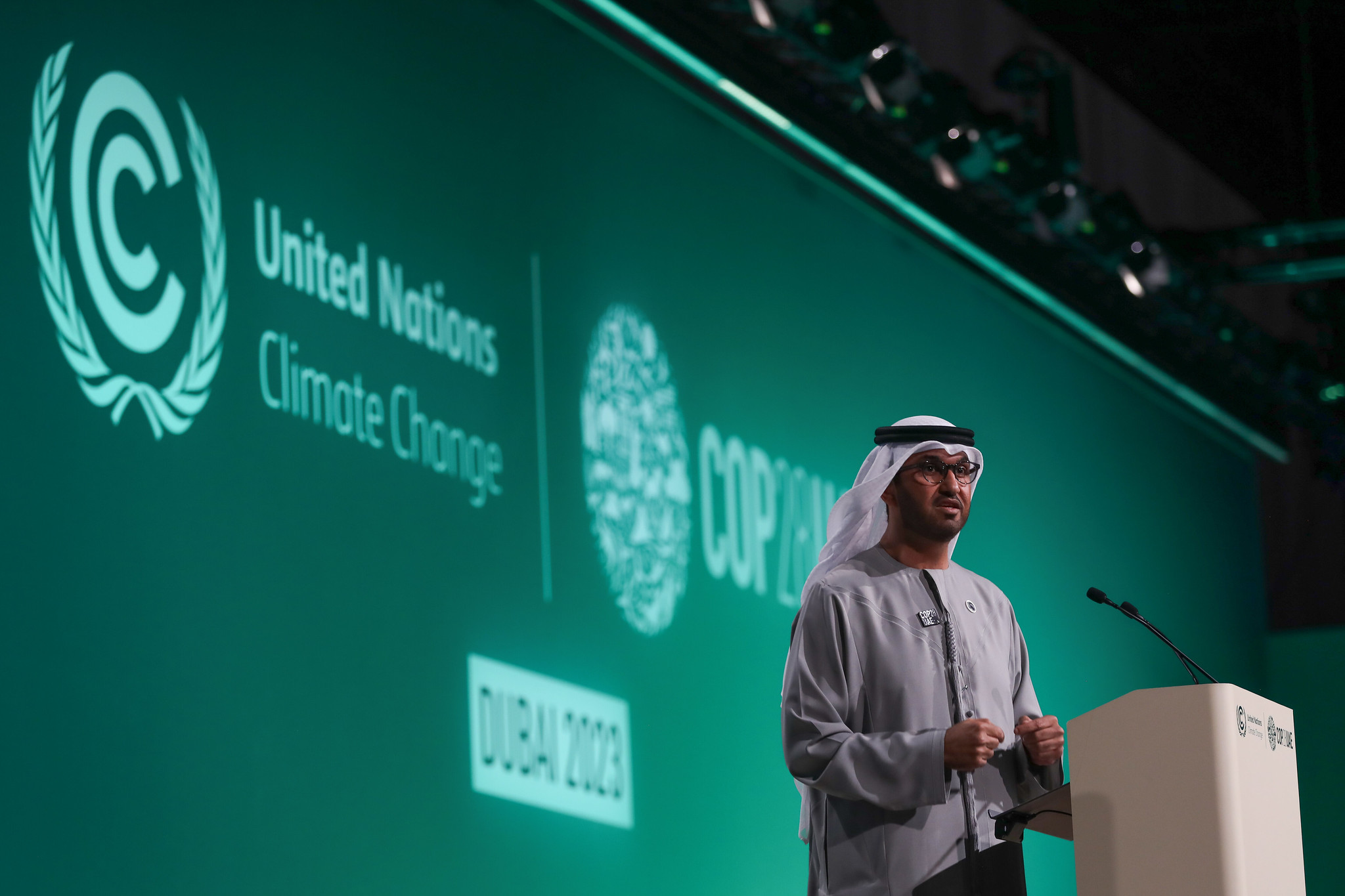
A group of scientists, who view this as a tragic outcome, are sounding the alarm at the absence of concrete goals on how to make the transition to net zero greenhouse gas emissions. The next few years are said to be decisive for achieving net zero by 2050. To make the agreement a meaningful one, every country, region and industry needs to devise a specific, science-based road map for the transition, establish the necessary policies and coordinate efforts internationally.
―― What other outcome did you see at COP28?
A major outcome was the promotion of a shared understanding of the intrinsic connection between climate change and natural systems, specifically as it relates to the idea of “nature positive,” a term that refers to halting biodiversity loss and environmental degradation and putting nature on the path to recovery. COP28 took significant steps to put at the center areas that had been previously considered peripheral compared to energy issues, such as water, health, cities and trade.
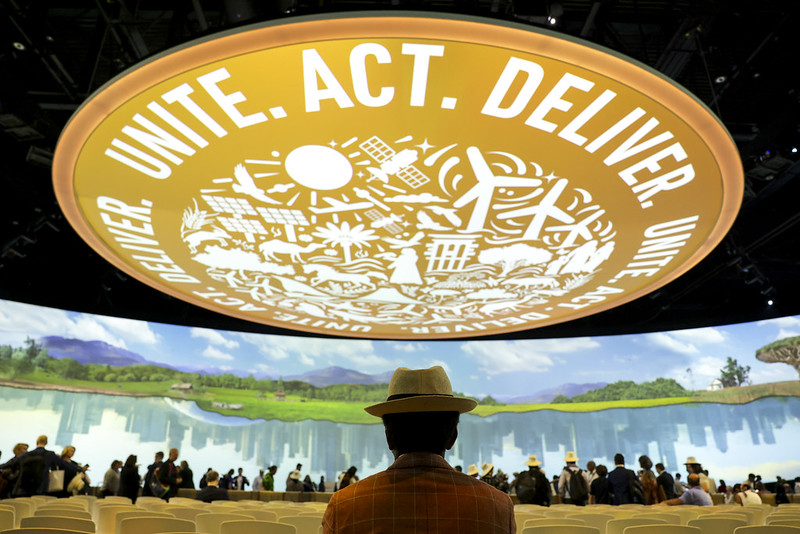
On the first day, a declaration was made calling for changes across the entire food system, from production to consumption. Representatives from more than 200 countries, large corporations and small farms signed and endorsed the declaration. There were also numerous other agreements aimed at nature-positive actions, including conservation and the sustainable use of nature.
The Earth consists of several important systems in addition to the climate, and natural systems account for a large proportion of them. It is said we can make one-third of the carbon reduction necessary for planetary stability by enacting nature-positive policies, thus making this movement critical to tackling climate change. This COP was a remarkable demonstration of how both carbon neutrality and nature-positive thinking are needed to protect the Earth’s systems so humans can live sustainably and peacefully.
Bridging the North-South divide
―― What is the key to addressing the inequalities underlying the diplomatic and ambiguous language of the COP28 agreement?
Beneath the problems of climate change and environmental collapse lies a deep-seated inequality between the developed countries of the Global North and the less-developed countries of the Global South. The economies in the North have developed through the endless exploitation and consumption of vast quantities of natural resources from the South. For example, many goods in the North are produced in an unsustainable manner for cheap prices with wide distribution. Meanwhile, sustainably produced goods often have higher prices and do not sell as well. This means that irresponsible food and goods production, including fishing, hunting and logging, have continued, destroying the natural environment in the process.
To fundamentally address this inequality, we need to rethink the basic system with which we ascribe value to natural capital, and accordingly, the financial system itself. At COP28, there were discussions and recommendations for how the Global North should channel funds for the development of nations in the South. The University of Tokyo’s Center for Global Commons (CGC) co-authored a paper on “nature finance,” proposing a desirable financial framework to mobilize funds for the sustainable use of natural capital. We need to see major innovations in order to change our value systems for natural capital and reform multilateral development banks, as they are at the center of the global financial system. We also need to reform our trade system that was built on the mass production of cheap goods through the unsustainable use of natural resources, and instead shift to one in which sustainable production and consumption are possible.
Multistakeholder coalitions, which are composed of diverse stakeholders cooperating across national borders, will also continue to play an important role. One that I have been watching for a while now is the First Movers Coalition (FMC), which seeks to decarbonize the hard-to-abate industrial sector. Under the current system, producing products sustainably in hard-to-abate sectors can be cost prohibitive, but the FMC seeks to create a coalition along the value chain of such sectors to find committed buyers of more expensive, but more sustainable, products. When producers are assured that their sustainably produced products will find customers down the line, there is room for further production and innovation.

So that we can also encourage efforts like this within the food system, which accounts for more than 30% of greenhouse gas emissions, the World Economic Forum launched a new coalition at COP28: the First Movers Coalition for Food (FMC4Food). Large global food corporations, including Nestlé, Pepsi, Cargill and Danone, are taking part. In order to approach governments and corporations in various countries, the CGC has also signed up to serve as a design partner for FMC4Food.
In this way, small victories are happening everywhere. However, to address the kind of fundamental inequality that divides the Global North and the Global South, not to mention the root causes of climate change and nature loss, we need major, systemic changes at all levels. We cannot assume small victories are enough to fundamentally change financial and trade systems that have been in place for two centuries, since the Industrial Revolution. The situation humanity will face in 2050 heavily depends on the degree to which we can change these existing systems in a relatively short timeframe.
Solidarity and cooperation based in inclusivity
―― What kind of systemic changes can we expect to see in the future?

We expect to see greater participation from women, young people and Indigenous communities. Not only did COP28 have more participation from women than ever before, but there were also members of Indigenous communities who participated clad in traditional clothing. Being in Japan, Indigenous communities may seem far removed from us, but recognizing their critical role in safeguarding the natural system will only become more important going forward. Expectations are growing for COP30 in 2025; the event is being held in Brazil (in the Amazonian city of Belém), home to the Amazon rainforest and numerous Indigenous communities.
I believe that Japan can help to bridge the North-South divide and contribute to systemic changes by cooperating more with Asian countries, rather than focusing its attention on the West. The path to decarbonization will vary according to the situation of each country or region, even if they share the goal of reaching net zero by 2050; solutions modeled on Western systems and classifications are not necessarily applicable to all regions of the world. The Energy Transition Initiative - Center for Global Commons, an industry-academia collaboration platform for which the CGC serves as the secretariat, is trying to chart a path to net zero for Japan while listening to Asian voices.
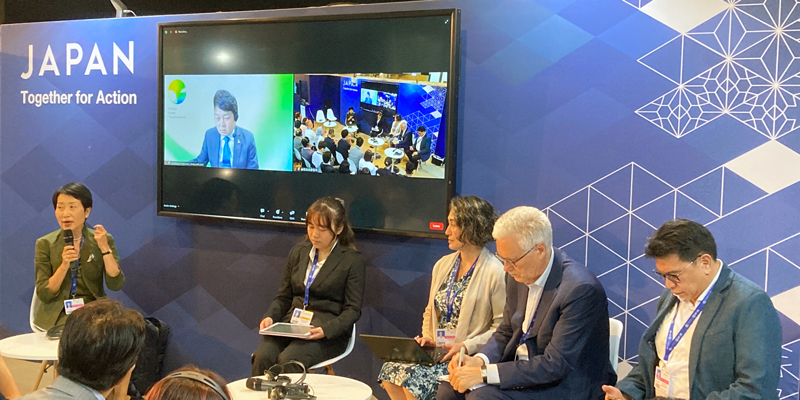
The desirable path for Japan and the path envisioned by Southeast Asian nations have much in common, in particular, the fact that we share similar transition pathways and place value on natural capital and community. That said, I do not suggest that we simply create multiple geopolitical “blocs.” I believe that the key to realizing a nature-positive economy in the case of Japan will be to collaborate with the people of Asia, exchanging knowledge and experiences based on scientific evidence, and using that to inform the creation of global rules.
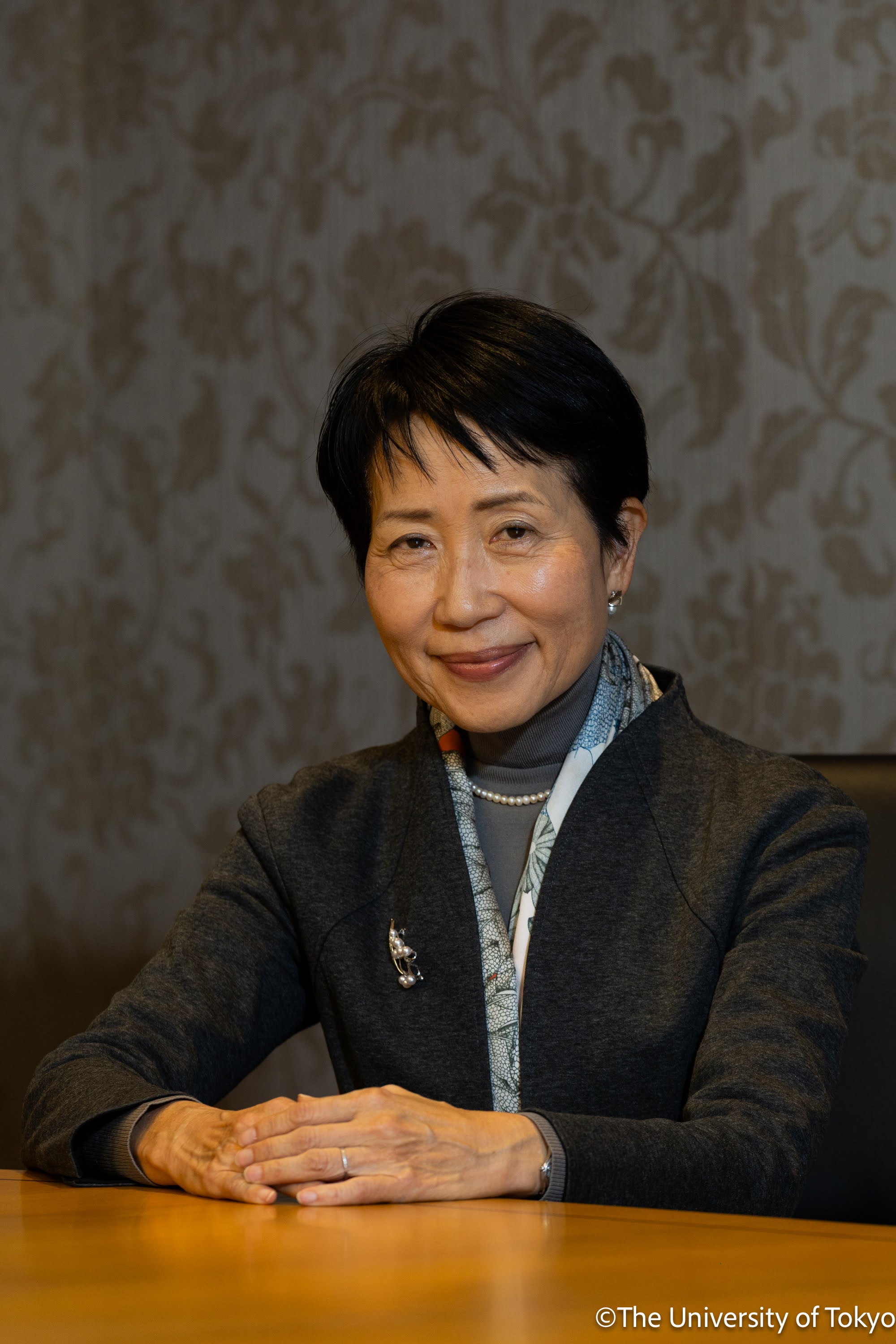
Naoko Ishii
Director, Center for Global Commons
Project Professor, Institute for Future Initiatives
Special Presidential Envoy for Global Commons
Ph.D. in international studies from the Graduate School of Frontier Sciences at the University of Tokyo. Before joining the University of Tokyo in 2020, served as CEO of Global Environment Facility from 2012 to 2020. Also worked for Japan’s Ministry of Finance, the International Monetary Fund, Harvard Institute for International Development and the World Bank. Author of several publications in Japanese and co-supervising editor of the Japanese translation of Big World, Small Planet: Abundance within Planetary Boundaries by Johan Rockström and Mattias Klum (Yale University Press, 2015) (Japanese edition: Chīsana chikyū no ōkina sekai, Maruzen Publishing, 2018).
Interview date: Dec. 20, 2023
Interview: Yuki Terada, Hannah Dahlberg-Dodd






